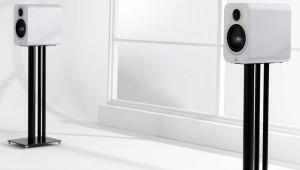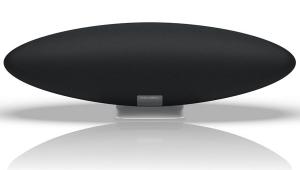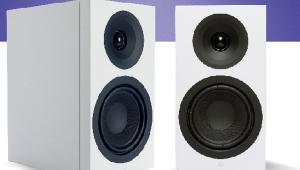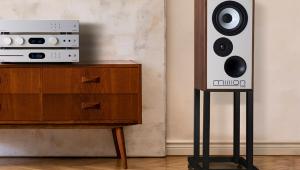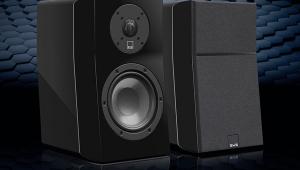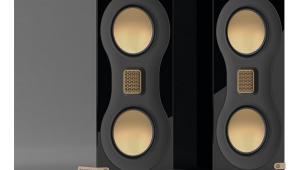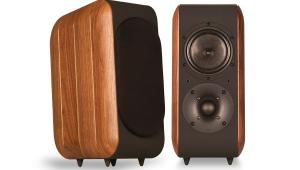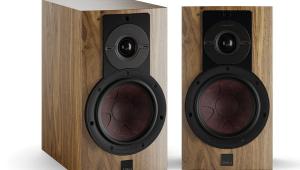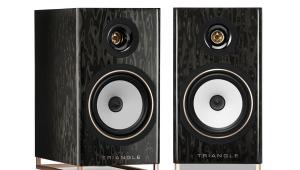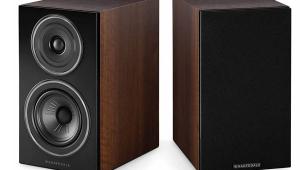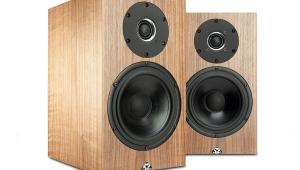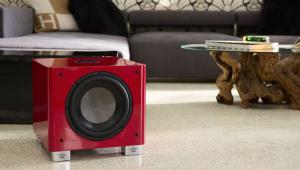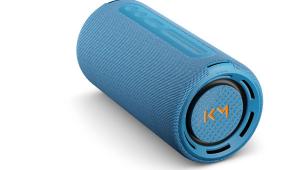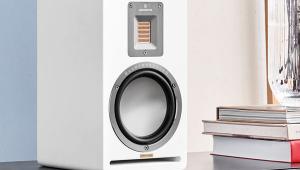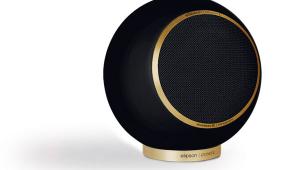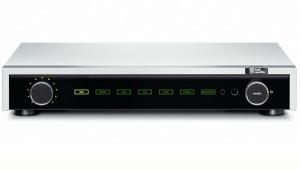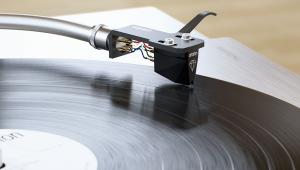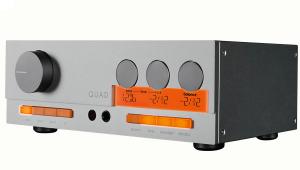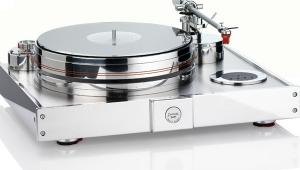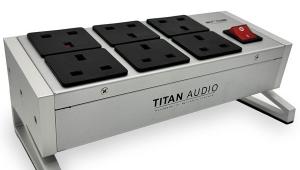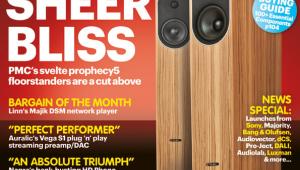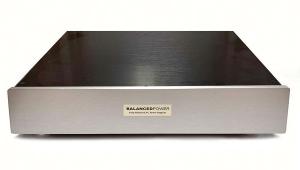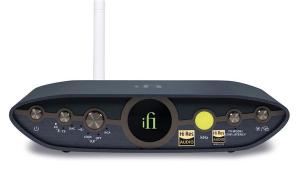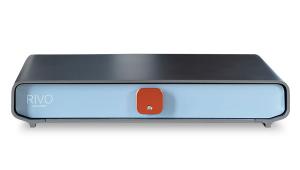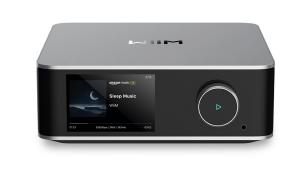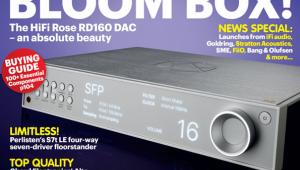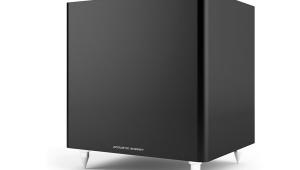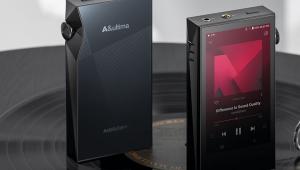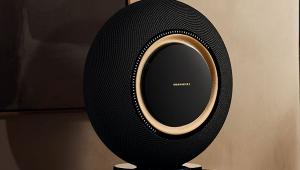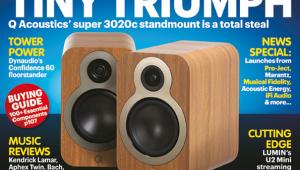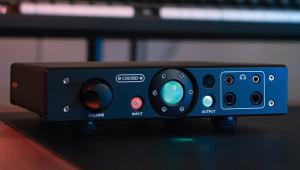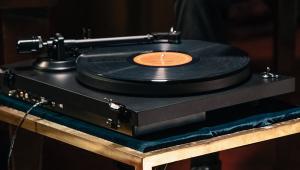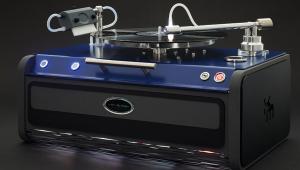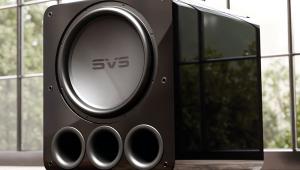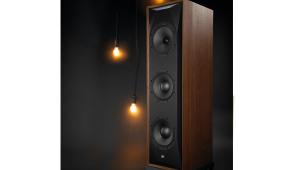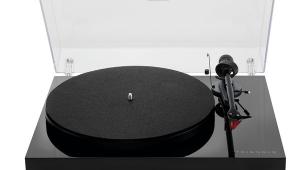Wharfedale Evo4.2
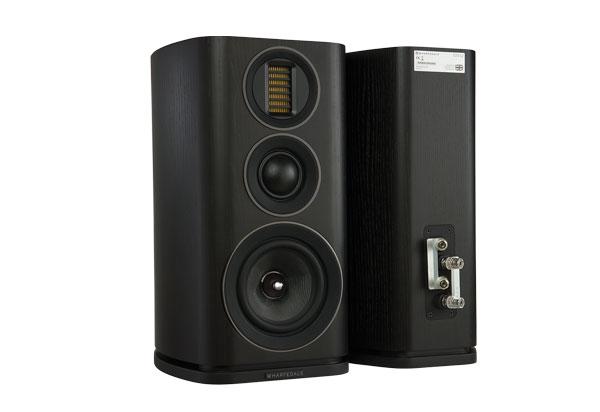
 To many people, a £600 standmount speaker is likely to conjure up a few assumptions. For example, it will have two drivers, be around 30 to 35cm tall and there will be a port somewhere in the cabinet to aid its bass response. In presuming this, you will have a handle on almost every model available at the price. The ‘almost’ is important, though, because Wharfedale has different ideas...
To many people, a £600 standmount speaker is likely to conjure up a few assumptions. For example, it will have two drivers, be around 30 to 35cm tall and there will be a port somewhere in the cabinet to aid its bass response. In presuming this, you will have a handle on almost every model available at the price. The ‘almost’ is important, though, because Wharfedale has different ideas...
The Evo4 Series is the company’s latest range and is intended to bring some of the technology and thinking developed for its flagship Elysian family to a more affordable price point. The most notable is the use of an Air Motion Transfomer-type tweeter, which is fitted to all models in the range. AMT-type drivers offer a tweeter design with the combination of large radiating area and low overall mass for wide dispersion and excellent high-frequency performance. With the baby 4.1 priced at £450, this is one of the most cost-effective price points I’ve seen for this kind of tweeter.
The Evo4.2 is the second of the two standmounts in the series and has a rare three-way configuration (at the price) with an AMT tweeter, 50mm soft dome midrange driver and a 165mm woven Kevlar bass driver. The company says that there’s a strong argument for doing things this way.
AMTs typically offer excellent high-frequency performance, but don’t traditionally work down to the same crossover point that a conventional dome tweeter is comfortable at, meaning the handling of midbass frequencies can be less than ideal. In the Evo4.2, the dome midrange handles frequencies between 1.4kHz and 3.9kHz and keeps all the drivers within their operational comfort zones. The trade off comes in the form of a more complex crossover and notional reduction in efficiency.
The other interesting aspect of the Wharfedale’s design is the bass port arrangement. This is also borrowed from its Elysian models and is called SLPP (Slot Loaded Profile Port). It’s built into the base of the cabinet and gives the impression of being a separate plinth. Wharfedale says that this helps to control and regulate the flow of air in such a way as to permit placement where you want rather than working to a minimum distance from a rear wall. The cabinet also benefits from this trickle-down technology. It is made from varying thicknesses of MDF to quell resonance and ensure it is as rigid as possible. The curved sides further control and eliminate standing waves while also helping reduce the perceived physical size of the cabinet.
This works up to point, although the Evo4.2 sports a set of dimensions that are a long way outside the norm considering the price. Standing at 450mm tall, it is significantly larger than any rival I can think of and this has some implications on how it is best positioned. I initially try it on a 60cm high stand, but this places the AMT tweeter above the height of my ear when sat in the usual listening position so I switch to Atacama’s shorter SE24 stand. You will need to budget for new stands if you’ve previously had a more traditionally proportioned standmount in place.
There’s also the small matter of the looks, which may not suite all tastes. Some of the proportions feel decidedly awkward and the curved cabinets – something I associate with more modern designs – clash with the 4.2’s classic proportions. The 165mm driver looks a little too small for the size of the cabinet and the overall result is rather fussy, although it is very well made and points of contact such as the bi-wireable speaker terminals inspire confidence. .
Sound quality
Listening to the Evo4.2 for the first time goes some way to forgiving the slightly ungainly appearance. The first point of note is that, in keeping with the adage that there’s no replacement for displacement, it demonstrates some impressive low end. This is slightly confusing as Wharfedale quotes a low-frequency response of 54Hz at +/- 3dB, increasing to 48Hz at +/- 6dB, but in my room it sounds like it comfortably exceeds both these figures without any appreciable roll off.
Where this really comes into its own is adding authority to material. The low synth line of John Grant’s Ernest Borgnine has all the menace and drive it needs to set the stage for the singular vocal turn. It’s certainly not the fastest-sounding speaker at £600 – although the SLPP system is effective at avoiding any perceivable chuffing effect to the bass itself – but with the bigger sweep of a massed band on Kamasi Washington’s Fists Of Fury, it simply sounds so much more convincing than many rivals.
There’s plenty to like about the upper registers too. The most important facet of the three-way aspect of the Wharfedale is that the drivers work together in an entirely cohesive way with no perceivable handover between them. The dome midrange and AMT in particular form an impressively cohesive partnership with one another. Royal, the latest album from German-Nigerian singer-songwriter Ayo, demonstrates this to fine effect. The opening track, Rest Assured is something that the Wharfedale seems to thrive on, and as the vocal performance makes use of both the midrange dome and AMT tweeter, there’s no tonal irregularity as it moves between the two.
There is also impressively little sense of constraint or colouration from the cabinets. Provided that a modicum of care has been taken when it comes to placing and positioning in the listening room, it manages to disappear from my perception and is impressively difficult to pinpoint inside a big and very consistent soundstage. It benefits from being used with decent partnering equipment, but this is more a reflection of its ability to show the benefits of whatever its attached to is capable of – thanks to its admirable transparency – rather than being a difficult design to drive.
The only drawback is that all of these very positive qualities don’t add up to a speaker that is always as much fun as you might expect. Taking the Evo4.2 on a lively blast through Kasabian’s Stevie, is strangely unsatisfying. I say ‘strangely’ because none of the specific attributes of what it is doing suggests why this is the case. The tonal realism remains extremely convincing and for all the effortless top extension and dispersion, the Evo4.2 is usefully forgiving too. Simply put, at points in the track where you really ought to have a fist raised, yelling along to the lyrics, the Wharfedale has you parked firmly on the sofa. It would be wrong to describe it as dull, but it’s not miles wide of the mark to call it rather matter of fact.
How important this is will depend on your musical preferences. With more relaxed-tempo music, even when the time signature is relatively complex, the Evo4.2 is capable of moments of genuine engagement and this allows you to delight in the superb performance of the upper registers in a more emotive context. The more time you spend with it, the more you become aware of the fabulous detail retrieval it offers. Without ever sounding forensic or wearing, it manages to extract levels of information that are genuinely outstanding for a speaker under £1,000. Listening to Portico Quartet’s Steps In The Wrong Direction, it teases out nuances of the band performing as a cohesive group that brings everything together in a way that is tremendously satisfying.
Conclusion
Wharfedale’s Evo4.2 is not the complete all-rounder, but I am not sure that’s what the company intends. What this gentle giant can do is deliver certain types of music in a manner that is largely beyond most rivals at the price and if you are happy with its style and can work with its demands it will delight, making it definitely worthy of a thorough audition at the price. JP
DETAILS
Product: Wharfedale Evo4.2
Price: £600
Origin: UK/China
Type: Three-way standmount loudspeaker
Weight: 13.4kg
Dimensions: (WxHxD) 250 x 455 x 340mm
FEATURES
● 30 x 60mm Air Motion Transformer tweeter
● 50mm midrange driver
● 1x 165mm Kevlar bass driver
● Quoted sensitivity: 87dB/1W/1m (8ohm)
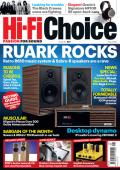 |
Inside this month's issue:
Ruark R610 music system and Sabre-R standmount speakers, PMC twenty.23i Active, floorstanders, English Acoustics Downton preamplifier, Bluesound NODE ICON preamp/streamer, Ortofon Concorde Music Blue MM cartridge and much, much more
|
